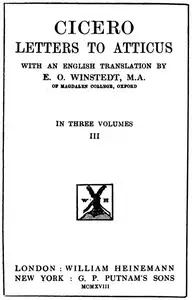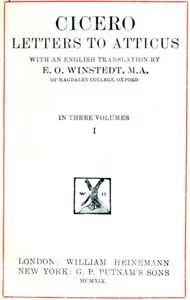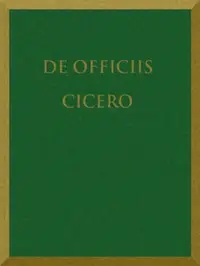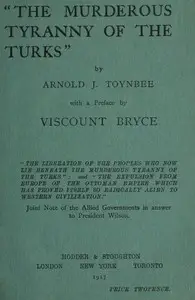"The Letters of Cicero, Volume 1" by Marcus Tullius Cicero is a historical account compiled from the correspondence of the Roman statesman, direct from his letters written between approximately B.C. 68-52. The volume captures a pivotal time in Roman history, focusing on Cicero's personal and political struggles as a key figure during the Republic's decline. This compilation offers insights into Cicero’s life, his relationships, and the historical events he experienced, thereby providing an intimate glimpse into a critical historical era. At the start of this volume, the opening presents a preface that outlines the translator's intentions and the importance of Cicero's letters, emphasizing their historical context and personal significance. The correspondence begins in Cicero's late thirties and covers various aspects of his public and private life, including his thoughts on political figures, his aspirations for office, and his responses to critical events of the era. Notably, the letters provide commentary on Cicero's character, revealing his ambitions, vulnerabilities, and relationships with prominent contemporaries like Pompey and Cato. As the volume sets the stage for Cicero's unfolding narrative, readers are introduced to the intricate interplay between personal sentiment and public duty during a tumultuous period in Rome. (This is an automatically generated summary.)

The Letters of Cicero, Volume 1 The Whole Extant Correspodence in Chronological Order
By Marcus Tullius Cicero
"The Letters of Cicero, Volume 1" by Marcus Tullius Cicero is a historical account compiled from the correspondence of the Roman statesman, direct fro...
Marcus Tullius Cicero was a Roman statesman, lawyer, scholar, philosopher, writer and Academic skeptic, who tried to uphold optimate principles during the political crises that led to the establishment of the Roman Empire. His extensive writings include treatises on rhetoric, philosophy and politics. He is considered one of Rome's greatest orators and prose stylists and the innovator of what became known as "Ciceronian rhetoric". Cicero was educated in Rome and in Greece. He came from a wealthy municipal family of the Roman equestrian order, and served as consul in 63 BC.


















